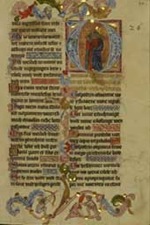This volume does not claim to be a tactical, or strategic history of the campaigns of which it treats; it aims rather to be a narrative of the every-day life and experience of the private soldier in camp and field—how he lived, how he marched, how he fought and how he suffered.
Still catching up — the David Rumsey Map Collection announced last month that it has added over 550 new maps to its online collection.
You can get a list of all the new maps here. A nav on the right shows you the kinds of maps available, including national maps, physical maps, and atlases. As you make selections your search options narrow down further. You can also choose by place mapped, date, and cartographer.
It’s easy to figure out why e-readers and tablets are the size that they are: They’re all about the size of paperback books, whether trade (iPad) or mass-market (the Kindle 3). Some oversized models, like the Kindle DX, are closer to big hardcovers. But why are books the size that they are? It turns out it’s because of sheep. Sheepskin, to be exact.
Carl Pyrdum, who writes the blog Got Medieval while he finishes his Ph.D. in Literature at Yale, has the skinny on book sizes. You see, before Europeans learned how to make paper from the Arabs (who’d learned it from the Chinese), books were made from parchment, which was usually made from sheepskin. Sometimes, they’d use calfskin, too; if it was really primo stuff, it was called vellum. Like reading a whole book made out of veal.
I love the "book made out of veal" quote!
Today, Scribd is launching our new Desktop Uploader for Windows, a tool that makes uploading documents directly from your desktop easy.
Scribd publishers with Windows XP and above or Net 2.0 and above can install the Desktop Uploader here. (Mac users will find a link to Scribd’s traditional Mac Desktop Uploader on the same installation page.)
The following presentation walks you through the Uploader installation step-by-step and shows you how to use its coolest features.

Indie Publishing: How to Design and Produce Your Own Book
edited by Ellen Lupton
This is a fascinating book full of great ideas for designing and producing your own book. The style is very "indie" (you're surprised) but the design principles are solid. There's also a section for crafting handmade books that's most interesting.
Google Reader Cuts the Clutter with Fullscreen Mode, New Shortcuts
Google quietly updated their popular web-based RSS app Reader with a new fullscreen mode that hides all the clutter and navigation so you can focus exclusively on what you're reading.
The folks who manage our popular THOMAS legislative information website have been taking advantage of the August congressional recess to make some upgrades.
Enhancements include optimization for mobile devices, easy links to social media and links to the legislatures of all 50 states, D.C. and U.S territories.
There’s more on the Law Library’s new blog, In Custodia Legis.
August 27th, 2010National Library of Poland puts 20 collections online
By Gary Price Founder and Senior Editor of Resource Shelf
From the Digital Collections Home Page:
National Digital Library Polona presents the most precious and valuable documents from the collection of the National Library.
From the Points of Interest Blog from Booklist:
…treasures including manuscripts such as Ptolmey’s Cosmographia, the Chopin collection which will eventually include digital versions of all of his manuscripts, the history of Warsaw, archives and periodicals covering World War II in Poland, and a Yiddish literature collection. There are also collections of children’s literature, underground publications from World War II, and serials from the 19th and early 20th century. Historians, musicians, and scholars in Slavic and Jewish studies will find a wealth of material here.
Access the National Library of Poland Digital Collections Home Page
Digg us. Slashdot us. Facebook us. Twitter us. Share the news.This entry was posted on Friday, August 27th, 2010 at 11:19 am and is filed under Gary Price, Paul Biba, Poland, Resource Shelf, digital libraries. Tags: Gary Price, Poland, Resource Shelf. You can follow any responses to this entry through the RSS 2.0 feed. You can skip to the end and leave a response. Also, please note that if you're commenting for the first time, your remarks will be held for moderation. If you still have problems, email TeleRead Editor Paul Biba. Pinging is currently not allowed.


